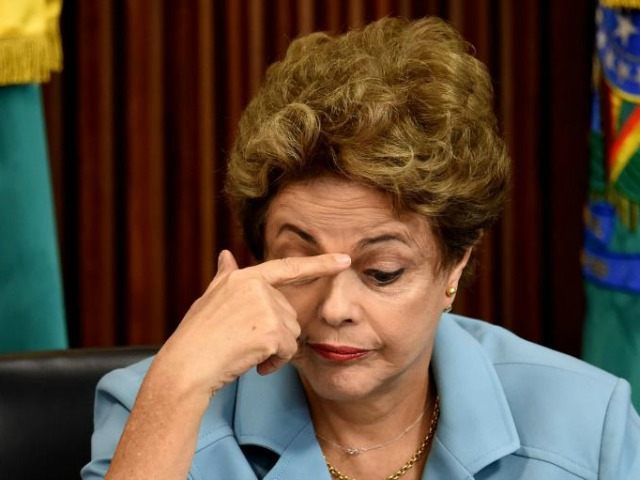President of Brazil Dilma Rousseff hosted a meeting among leaders of various Brazilian Christian denominations Tuesday, requesting they actively engage their congregation in awareness and prevention methods to combat the ongoing Zika epidemic in the region.
Brazil’s O Globo newspaper reports that Rousseff met with the leaders of the National Council of Christian Churches in Brazil (CONIC) – which includes, among others, the Catholic, Presbyterian, Syrian Orthodox, Episcopal, and Evangelical churches – requesting that they actively discuss Zika in their churches. Representatives of CONIC told O Globo they believe that addressing Zika prevention in sermons will help populations take the virus seriously.
“It is necessary that the churches take their social role mobilizing the faithful to fight various problems related to sanitation, but, in particular, combating Aedes aegypti,” Joel Zeferino, president of the Baptists Alliance of Brazil, told the newspaper. The Zika virus is spread through the Aedes aegypti mosquito, which thrives in hot, humid climates. Preventing pools of stagnant water from collecting, particularly in unsanitary areas, is key to keeping the mosquito population low and diminishing the threat of spreading Zika.
President Rousseff has previously attempted to address the nation regarding the dangers of the Zika outbreak, delivering a national address last week. Due to various scandals during her tenure, particularly a corruption scandal involving the state-owned oil corporation Petrobras, Brazilians drowned out her speech on Zika with “panelaço” protests, in which residents of at least five cities filled the streets with the sound of banging pots and pans.
Rousseff has also attempted to recruit the international, and particularly Latin American, community into the struggle against Zika. In January, Rousseff called for an emergency meeting of the regional trade bloc Mercosur to discuss preventing the spread of Zika over international borders. In addition to Brazil, Colombia, Venezuela, and El Salvador have documented tens of thousands of Zika cases in the past six months.
Rouseff has also deployed over 200,000 Brazilian soldiers to go door-to-door in the nation’s most-affected communities, distributing literature on how to protect against Zika, giving pregnant women insect repellant, and warning residents to wear long-sleeved clothing to prevent mosquito bites.
O Globo notes that those who discussed the meeting all said Rousseff mentioned only prevention and awareness, and did not discuss the issue of abortion. Abortion is illegal in Brazil except in cases of rape, incest, and threat to the life of the mother, and a judge must approve all individual abortions. While the Zika virus typically (in 80 percent of cases) does not trigger any symptoms in adult patients, and those who do suffer symptoms report mild ones, studies have begun to uncover a link between Zika and a number of birth defects, most notably microcephaly. The U.S. Centers for Disease Control (CDC) confirmed on Wednesday that a number of infants who died at birth with microcephaly carried traces of Zika in their bloodstream.
Microcephaly is a condition in which the unborn child develops a skull too small for his or her brain, causing severe neurological damage. Due to the possibility that the presence of Zika in pregnant mothers may cause microcephaly, the Brazilian government has warned women to avoid getting pregnant until medical experts get the Zika outbreak under control.
The Brazilian Christian community has openly rejected calls to expand access to abortions in Brazil over the Zika outbreak. The President of the National Confederation of Brazilian Bishops (CNBB), Sérgio da Rocha, asserted that abortion “is not an answer” to Zika. “We value life in every situation and in any condition in which it arrives,” he added. “Having less quality of life does not mean there is no right to live or less human dignity.”
“Microcephaly has been occurring in Brazil for years. They are taking advantage of this moment to reintroduce the abortion topic,” Auxiliary Bishop Leonardo Ulrich Steiner, secretary general of the CNBB, said of the issue, adding that “abortion leads to eugenics.”
Leftist groups have initiated an international push to defy Latin America’s strict Catholic support for the right to life. Numerous editorials in left-leaning newspaper have called the refusal to allow abortion in cases of Zika a human rights issue. Planned Parenthood International has launched a fundraising campaign off of the Zika epidemic, asking supporters to donate more money to allow them to better disseminate pro-abortion propaganda in the region.

COMMENTS
Please let us know if you're having issues with commenting.